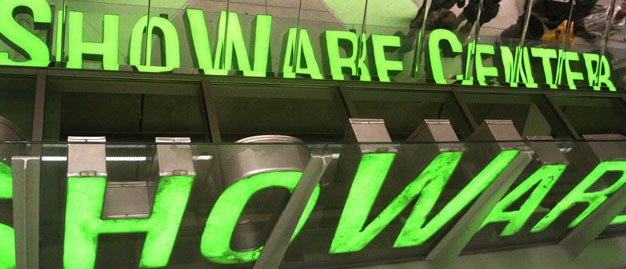The financial losses continue to mount for Kent’s ShoWare Center as city leaders look to find ways to boost revenue at the nearly 4-year-old arena.
The city-owned arena has lost $634,634 through the first nine months of this year, according to the center’s income statement. ShoWare had expenses of $1.86 million and revenues of $1.23 million in the first three quarters.
Two Kent City Council members voiced their concerns about the arena during an Oct. 16 meeting when the council agreed to assess a business and occupation (B&O) tax to raise an estimated $5 million to help pay for overdue street repairs.
“The other problem we need to deal with is the ShoWare,” Councilman Bill Boyce said at the meeting. “We need to fix our debt problem with the ShoWare.”
The arena has lost more than $1.3 million in its first three years of operation. That figure could go over $2 million by the end of 2012. The arena lost $451,723 in 2009, $398,013 in 2010 and $457,480 in 2011.
“We will tackle the problem,” Councilwoman Elizabeth Albertson said after Boyce raised the issue. “Figuring out a way to make that facility work has got to be a priority for the council.”
Ben Wolters, city economic and community development director, said at a Public Facilities District (PFD) meeting on Thursday that some answers could be coming in the next few weeks. The PFD board oversees operations of the $84.5 million arena.
Wolters said the council and Mayor Suzette Cooke asked the Seattle Thunderbirds (the junior hockey team with a 30-year lease to use ShoWare) and SMG (which manages arena day-to-day operations, including event booking, the budget, vendor selection, public relations and marketing) to provide recommendations to the city for revenue growth. Those recommendations are expected to be released soon.
A consultant report also is expected to be released in early November about the ShoWare Center’s economic impact on the city. The council approved the $36,400 study earlier this year.
“Even as we are grappling with very frustrating operating deficits, I’m pleased to see what I’ve observed in the (early) numbers coming back to the community that otherwise would not be spent here,” Wolters said. “I look forward to the findings that ShoWare is pushing money back into the community.”
ShoWare officials blamed higher losses than expected in June, July and August on lower ticket sales at concerts for a drop of about $34,000 and an unexpected $69,000 cost to repair a compressor, which helps cool the ice.
“The adjusted gross income for July we missed by about $30,000 because concert sales were not a hit like we thought,” said Patrick McCluskey, ShoWare finance director, at the PFD meeting. “The next two months we were close to hitting (the budget target).”
Wolters said the city is trying to get back some of the $69,000 for the compressor repair through a warranty.
City officials set aside money each year in the city’s annual capital budget fund to cover the anticipated losses at the arena. If not needed for the arena, that money could be used to help pay for improvements to city streets, facilities and other capital projects.
City Attorney Tom Brubaker told the PFD board that the recent ruling by the state Supreme Court about the debt problems at the Wenatchee events center would not impact Kent as far as exceeding its constitutional debt load to finance the arena through bonds.
“We’re OK,” Brubaker said. “It puts us in a safe spot legally. But we still have the debt of the city to deal with.”
Talk to us
Please share your story tips by emailing editor@kentreporter.com.
To share your opinion for publication, submit a letter through our website https://www.kentreporter.com/submit-letter/. Include your name, address and daytime phone number. (We’ll only publish your name and hometown.) Please keep letters to 300 words or less.

